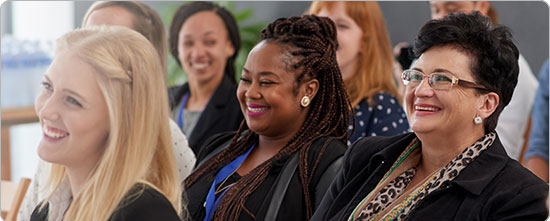Back to series


Orientation
Welcome by small group leader and opening prayer
Introductions: In pairs, interview each other using the following questions:
1. What is your name?
2. Where is your church home?
3. How did you learn of this small group program?
4. What do you find to be the most difficult question in life? In religion?
5. What do you hope to gain from this study?
Now introduce your partner to the group using her answers to the questions.
Small group leader introduces the design of the program, including
- Prior to meetings: meditate on a memory verse, read an article (or watch a video) on a conversational apologetics exercise
- Format for meetings, including video, discussion, and conversational apologetics practice
Group Discussion:
1. What are some of the difficulties and challenges that you face in sharing your faith in Jesus Christ? Describe.
2. Who are some of the contemporary people challenging the truth of the Christian faith? How are they attacking the faith?
3. How have you seen other Christians and your church respond to the challenges of the culture and world against Christian truth and ideas?
Watch three short videos and discuss:

Introduce Amy Orr-Ewing: Amy Orr-Ewing, D.Phil., is the Director of Programs for the Oxford Centre for Christian Apologetics (OCCA). Dr. Orr-Ewing earned her doctorate from Oxford University, having written on the Christian apologist and writer Dorothy Sayers. Dr. Orr-Ewing has written two books exploring key questions in apologetics: Why Trust the Bible? and But Is It Real? With her husband, Frog, she has published Holy Warriors: A Fresh Look at the Face of Extreme Islam and Deep. Amy has contributed to the books, God and the Generations and Worth Knowing: Wisdom for Women. She speaks and lectures on Christian apologetics worldwide, at events such as Keswick and Alpha International. She also speaks on university campuses, including Oxford, Cambridge, Vienna, and Hong Kong. Amy has been invited to speak in the White House and on Capitol Hill, as well as the Speakers Rooms in the UK Parliament. Amy and Frog serve in a church, in Buckinghamshire, called Latimer Minster, which they helped plant in 2010.
How to Overcome Fears when Witnessing to Other Religions, Amy Orr-Ewing (3 min.)
1. What are Amy’s main points about overcoming the fear of witnessing?
2. What are some practical things that we can do to overcome this fear?

Introduce Jana Harmon: Dr. Jana Harmon is a Teaching Fellow for C.S. Lewis Institute Atlanta, and serves on the Atlanta Advisory Board and serves as an Adjunct Professor of Cultural Apologetics at Biola University. Her doctoral research studied the religious conversion of atheists to Christianity looking at the perspectives and stories of 50 former Atheists. She views apologetics through a practical, evangelistic lens.
How to Share Your Faith with a Highly Intellectual Person, Jana Harmon (2 min.)
1. What insights does Jana have for us in talking with intellectuals?
2. What have you found helpful in talking with intellectuals?
How to Make a Meaningful and Intentional Prayer List, Amy Orr-Ewing (3 min.)
1. Take five minutes and write out the names of ten nonbelievers (family or friends).
2. Pray in pairs for the nonbelieving friends and family on your lists.
Introduce the assignments for next session and closing prayer.
Assignments to Complete before Session 2:
Memorize and meditate upon 1 Peter 3:15–16 (NIV):
But in your hearts revere Christ as Lord. Always be prepared to give an answer to everyone who asks you to give the reason for the hope that you have. But do this with gentleness and respect, keeping a clear conscience, so that those who speak maliciously against your good behavior in Christ may be ashamed of their slander.
Read the article “Five Ways to Start Gospel Conversations,” by Mary Amendolia Gardner. (This article is included below.)
Read and reflect upon the following conversational apologetics practice exercise, to be completed in Session 2.
-
- Conversational apologetics exercise: Share some experience in which a Christian appeared to be unprepared to give a reason for his/her faith when asked or confronted by a non-Christian. It may be a personal story or one you witnessed. Then discuss strategies for handling the question or confrontation in a more effective manner and act out the scenario in your group.

« INTRO 1 2 3 4 5 6 7 APPENDIX »
Five Ways to Start Gospel Conversations
by Mary Amendolia Gardner, M.A.
In November 2017 at Christie’s auction house, a Saudi prince paid $450.3 million, the highest price ever for a work of art, for Leonardo da Vinci’s painting Salvator Mundi. Leonardo’s painting of Jesus as Savior of the World is controversial for many reasons; notably, experts disagree as to whether Leonardo himself painted it! In the days following the sale, several Christian writers and commentators were quick to note that all might have the Savior of the world, for free. Indeed.
How might this be? Through us, Jesus’s disciples, who are commanded at the end of Matthew 28 to “go therefore and make disciples of all nations.”1
As a young Christian, new to the faith, I stood with a few other friends on a busy street corner in Georgetown and handed out gospel tracts on Friday nights, mostly to intoxicated university students. It was a great opportunity to meet and talk to people. No one ever came to faith. We prayed for people, we shared the gospel, but we did not “convert” or pray the sinner’s prayer with anyone. Was it a waste of time? Yes and no. We engaged in cold-calling evangelism, which is often ineffective. We had no natural connections to the people with whom we shared our faith. What my friends and I managed to do, though, was to start great conversations.
“Evangelism” can bring to mind both negative and positive images: of someone yelling “repent” at people through a bullhorn or of the kindly person who first shared Jesus with us. There is no formula; there is no one right way to share the good news. As there are varieties of people, there are varieties of approaches to sharing our faith.
Instead of fearing the “e” word, it might be helpful to think of evangelism as a way to achieve great conversations. Whether our natural inclination is introvert or extrovert, we are all called to be witnesses to Jesus. After all, if we understand the grace of God, if we have a dynamic relationship with Jesus, if we know His love, His nature, His transforming power and forgiveness, how can we not tell others about God’s goodness? As Nathan Betts recently wrote for Christianity Today: “When we diminish the work of evangelism and apologetics — as ineffective or as a secondary concern — we cheapen the gospel itself. If we believe the gospel is good news, true for all people, we cannot give up on making the case for our beliefs.”2 One way of making our case for our beliefs is by having great conversations. How to begin?

Start with prayer. Begin to pray for those you would like see come to faith. Ask God to give you people to pray for and then pray for them faithfully every day. I know one pastor who daily prays for family, friends, and neighbors. In addition, he includes prayers for specific world leaders and celebrities to come to faith in Jesus. We serve a great and mighty God, and with God all things are possible. Rely on God. Ask Him to provide you with the opportunity, courage, and right words to say. He promises to use you if you are willing.
Building on this foundation of prayer, here are five practical things that will help cultivate gospel conversations.
Be a good listener. Try listening to someone else; don’t interrupt or formulate your response in your head, but simply aim to listen and understand the other person. Try an experiment: see how long you can listen to another person without interjecting your own thoughts. It is harder than you think.
Having good conversations requires courage. To paraphrase Winston Churchill, we need courage to stand up and speak; we also need courage to sit down and listen. Social media is filled with noise and people eager to flaunt their “genius” point of view. It is the rare and wise person who takes the time to truly listen. Think of the effect it has on us when we believe someone has truly listened to us, and let us consider how we might listen well to another.
If you are a talker or, like most of us, lack self-awareness of the tendency to speak too much, ask the Lord to help you be a better listener. The world needs more listeners and fewer talkers. We can win a friend if we are simply willing to listen.
Good conversations are dialogues, not monologues. Be curious, ask lots of questions, and listen. Read the Gospels and consider how Jesus engaged with other people. Jesus asked questions; 173 of them, in fact, are recorded in Scripture.3 For instance, He asked, “What do you think?”(Matt. 21:28); “Why are you anxious?” (Luke 12:26); “Who is greater, one who reclines at table or one who serves?” (Luke 22:27); “What are you seeking?” (John 1:38); “Do you take offense at this?” (John 6:61).
Asking questions opens up conversations rather than shutting them down. People are not projects. When we engage with others, we have the opportunity to demonstrate the love, care, and nature of Jesus. Here are some possible questions for conversations:
-
- Isn’t it possible that…?
- Might it be true…?
- How do you know…?
- What do you think?
Sometimes in our asking questions and demonstrating concern rather than simply being argumentative, people will ask the real questions that are burning in the back of their minds. And an important part of dialogue is integrity. If you don’t know the answer to a question, just say so. This is also a reminder that knowledge of basic apologetics will increase your own faith as well as enable you to share it more readily with others.
Share your story and listen to another’s. One of the most compelling gospel stories is your own story. How did you come to faith? What difference has it made in your life? Perhaps you have never reflected on this. It is worth taking the time to write out your testimony. Have a ten-minute version and consider a two-minute version, too. It doesn’t matter if your journey to faith was not dramatic; the point is that it is your story.

Learning to tell the story of our faith journey takes practice. What we tell, and to whom, depends on the context, who is asking the question, and why they want to know. The book of Acts is full of examples of different approaches to evangelism.
First Peter 3:15–16 says,
In your hearts honor Christ the Lord as holy, always being prepared to make a defense to anyone who asks you for a reason for the hope that is in you; yet do it with gentleness and respect, having a good conscience, so that, when you are slandered, those who revile your good behavior in Christ may be put to shame.
Our role as Jesus’s disciples is always to be prepared to share the hope that we have in us. And one of the best ways to do this may be able to tell others about our journey of faith. The key is that we must do so in gentleness and respect, not being arrogant, forceful or obnoxious.
Sharing one’s story is not merely retelling facts. Storytelling is an art form. Part of telling one’s story of faith is listening to the other person. What sorts of questions are they asking? What is their background, their personal situation, their own history of encounters with religion or with Christianity? How might we listen well, and how might we ask them good questions?
When I share my testimony, I don’t necessarily tell my entire testimony sequentially nor do I tell all parts of my story. Sometimes I just share one significant event in my faith journey. It all depends on context and the person with whom I am speaking. Discernment is necessary.
Practice hospitality. When was the last time you invited someone over to your house for dinner, dessert, or a cup of coffee? Seek friendship, not conversion. In his book Evangelism and the Sovereignty of God, J.I. Packer writes: “The right to talk intimately to another person about the Lord Jesus Christ has to be earned, and you earn it by convincing him that you are his friend, and really care about him.”4
Conversation is easier when you are relaxed, enjoying a meal together. Hospitality does not need to be elaborate. Hospitality is not something learned on the pages of Pinterest; it is learned from Scripture, through verses such as Isaiah 58:7; Romans 12:9–13; 1 Peter 4:8–9; and Hebrews 13:1–2.
Serve others. All three of the New Testament passages cited above mention hospitality in the context of loving one another. Biblical hospitality is concerned with more than a beautifully presented meal and engaging after-dinner entertainment. It is concerned with seeking to love others by serving them (Rom. 12:7, 10).
All sorts of things are said in the media these days about Christians. We can demonstrate our Christian faith through tangible acts that speak to the reality of our faith and love. Giving of our time as a volunteer is one way to show care and commitment to our neighbors and communities. Consider volunteering as an English-as-a-second-language teacher or serve the local food pantry, whether or not these are part of your church’s official ministries. Or meet tangible needs. Offer to babysit your neighbors’ kids, provide financial help, or pray for a need.
I’ve offered five suggestions. As you might have noticed, the key to all of them is to listen. Truly listening will come as a surprise to many today and make an opening for the other person to be willing to listen in return. Wisdom and compassion are the prerequisites for evangelism; each is enhanced by the discipline of listening.
Will having better conversations result in the conversion of people to Christianity? Perhaps. It will at least help some move from hostile or unknowing to being curious and perhaps open to change. The process of coming to faith is not necessarily sequential or linear, rather, it is often a journey in which each stage is important.

So as you start to have these conversations, relax and be yourself, but also be intentional. Pray to overcome your fears. Get used to the occasional awkwardness, but then return to friendship rather than argument. Befriending someone at this level may be costly, but discipleship is costly.
At some point, in some conversations, it may be time to be direct. Ask the person God has placed on your heart where they are spiritually, what their view of God is, and what they think about this whole "Jesus thing." Ideally, the foundation for this conversation will have been well laid.
When another person is ready to listen, what should we say? I’ve suggested that our own faith story can be an important part of what to say. And then, of course, share the gospel: creation, fall, redemption (the cross), future hope.
Be bold when the time comes. After you have listened to someone deeply, explain honestly why you're a Christian. Be positive and clear about how much Jesus means to you. The Holy Spirit will be with you every step of the way! Invite rather than demand a decision.
Not many of us may have the gift of evangelism, but evangelism is a vital part of our own discipleship and spiritual formation. Paul told Timothy do the work of an evangelist (2 Tim. 4:5). Just because we don’t have the supernatural gift of evangelism doesn’t mean we get a pass at sharing and defending our faith. And I would venture to say we will not mature in our faith until we do so. To help, the C.S. Lewis Institute has great resources on conversational apologetics and evangelism.5
God doesn't require results from us. Our responsibility is to plant seeds of the gospel. Perhaps the parable of the sower will be helpful here. One plants, another waters, and still another harvests. Every Christian is called to — and all of us can — sow seeds of the gospel (Mark 4). Our role is to be faithful witnesses and to share with others how our relationship with Jesus affects our day-to-day life.
Amy Orr-Ewing recently offered some similar advice:
The Lord is the one doing stuff and we get to be a part of it! The minute we take on the responsibility of the salvation of the world onto ourselves, let alone the salvation of our family, neighborhood, school, or workplace, we begin to take on something that is a burden, and I want to encourage you. We are actually being invited into an adventure… We are invited to be God’s ambassadors, we have a role to play, and we are not in this alone.6
Indeed, we are not alone. We are with God, and God has placed us in this world with others to whom we must listen — and to whom we have the privilege of sharing the Good News of Christ Jesus.
« INTRO 1 2 3 4 5 6 7 APPENDIX »

Notes:
1 All Scripture quotations are from the English Standard Version.
2 Nathan Betts, “Today’s Evangelists Face a Crisis of Confidence,” Christianity Today online, December 20, 2017.
3 “173 Questions Jesus Asked,” Go Deep, Zondervan.com
4 J.I. Packer, Evangelism and the Sovereignty of God (Downers Grove, IL: InterVarsity, 2008), 81.
5 Conversational Apologetics. CSLI Senior Fellow Randy Newman’s book, Questioning Evangelism: Engaging People’s Hearts the Way Jesus Did, 2nd ed. (Grand Rapids: Kregel, 2017).
6 Amy Orr-Ewing, CSLI Conference: “Conversations That Count,” October 2017

Mary Amendolia Gardner earned her MA in Christian Spirituality from Heythrop College, University of London, with a focus on the visual arts and spiritual transformation. She trained for ministry at Wycliffe Hall in Oxford, England and the Oxford Centre for Christian Apologetics. Mary has worked professionally in radio, advertising, government, and church ministry. In her free time Mary enjoys international travel, reading spy novels, introducing people to the visual arts in museums and relaxing on the beach. She makes and appreciates art, loves the outdoors and all things Italian.

Amy Orr-Ewing
Speaker Amy Orr-Ewing is an international author, speaker, and theologian. She presently serves as the Director of Programs for the Oxford Centre for Christian Apologetics (OCCA). She has written two books exploring key questions in apologetics: Why Trust the Bible? and But Is It Real? She has coauthored several books with her husband Frog, including Millennials: Reaching and Releasing the Rising Generation and Holy Warriors: A Fresh Look at the Face of Extreme Islam. Amy has also contributed to publications such as God and the Generations and Worth Knowing: Wisdom for Women. She has been invited to speak in the White House, Capitol Hill, and the UK Parliament. Amy holds a Ph.D. in Theology from the University of Oxford. COPYRIGHT: This publication is published by C.S. Lewis Institute; 8001 Braddock Road, Suite 301; Springfield, VA 22151. Portions of the publication may be reproduced for noncommercial, local church or ministry use without prior permission. Electronic copies of the PDF files may be duplicated and transmitted via e-mail for personal and church use. Articles may not be modified without prior written permission of the Institute. For questions, contact the Institute: 703.914.5602 or email us.
COPYRIGHT: This publication is published by C.S. Lewis Institute; 8001 Braddock Road, Suite 301; Springfield, VA 22151. Portions of the publication may be reproduced for noncommercial, local church or ministry use without prior permission. Electronic copies of the PDF files may be duplicated and transmitted via e-mail for personal and church use. Articles may not be modified without prior written permission of the Institute. For questions, contact the Institute: 703.914.5602 or email us.
-
Recent Podcasts
The Side B Stories – Dr. James Tour’s story
by Jana Harmon, James Tour on April 12, 2024From a secular Jewish home, scientific scholar and...Read More
-
Why are Christians so Bad?
by Paul Joen on April 5, 2024
-
Questions That Matter Podcast – Dai Hankey and Gospel Hope for Weary Souls
by Randy Newman, Dai Hankey on April 5, 2024
-
Recent Publications
Isn’t Morality Relative?
by Christopher L. Reese on April 1, 2024It is widely accepted in the Western world...Read More
-
Do Muslims and Christians Worship the Same God?
by Andy Bannister on March 1, 2024
-
Artificial Intelligence and Its Impacts on Humanity
by John Lennox on February 13, 2024
0
All Booked
0.00
All Booked
0.00
All Booked
21934
GLOBAL EVENT: The Adventures of Eustace Clarence Scrubb (CSLI-Atlanta & CSLI-Chicago) 7:30PM ET/ 6:30PM CT
https://www.cslewisinstitute.org/?event=global-event-the-adventures-of-eustace-clarence-scrubb-csli-atlanta-csli-chicago-730pm-et-630pm-ct&event_date=2024-04-18®=1
https://www.paypal.com/cgi-bin/webscr
2024-04-18

Next coming event
Days
Hours
Minutes
Seconds
GLOBAL EVENT: The Adventures of Eustace Clarence Scrubb (CSLI-Atlanta & CSLI-Chicago) 7:30PM ET/ 6:30PM CT
On April 18, 2024 at 7:30 pm Virtual Online EventCategories
Speakers

Amy Orr-Ewing
Speaker
Team Members





